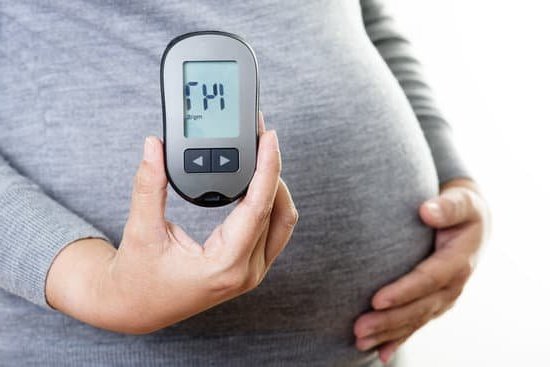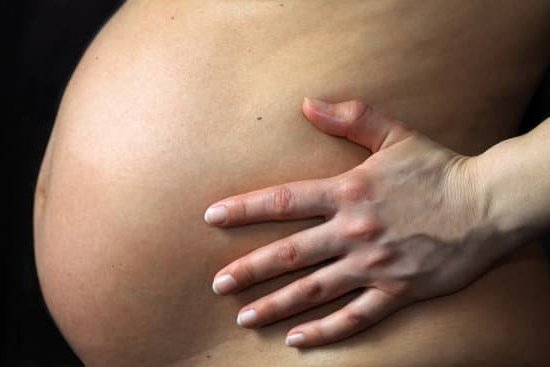Pregnancy is a time of profound change for a woman’s body, and along with the joy and anticipation comes the potential for discomfort. One common symptom that many women experience during early pregnancy is heartburn. In this article, we will explore the causes, symptoms, and management tips for heartburn in early pregnancy.
Heartburn early pregnancy can be an unpleasant and unexpected symptom for many expectant mothers. Understanding the reasons behind this discomfort can help women better cope with it throughout their pregnancy journey. In this section, we will delve into the factors that contribute to heartburn in early pregnancy, as well as the most common symptoms associated with it.
Pregnancy hormones and the physical changes happening in a woman’s body during early pregnancy are often responsible for causing heartburn. In addition to discussing these causes, we will also provide valuable insights on how to manage and alleviate heartburn effectively. Whether you’re experiencing mild or severe heartburn in early pregnancy, there are practical tips and natural remedies that can offer relief. So, read on to gain a deeper understanding of this common complaint among expecting mothers.
What Causes Heartburn in Early Pregnancy?
During early pregnancy, the body undergoes various hormonal changes that can contribute to the development of heartburn. The main hormone responsible for triggering heartburn symptoms is progesterone. This hormone plays a vital role in maintaining a healthy pregnancy, but it also relaxes the smooth muscles in the body, including the lower esophageal sphincter (LES). When the LES is relaxed, it allows stomach acid to flow back up into the esophagus, causing irritation and discomfort.
Increased Pressure on the Stomach
Another factor that can cause heartburn in early pregnancy is the increased pressure on the stomach. As the uterus expands to accommodate the growing fetus, it puts pressure on the stomach and other internal organs. This pressure can push stomach acids upward, leading to heartburn.
Changes in Eating Habits
Pregnant women may also experience changes in their eating habits due to nausea or food aversions. Skipping meals or eating larger portions than usual can also contribute to heartburn. Additionally, certain foods that are commonly consumed during early pregnancy may trigger heartburn symptoms.
It is important to note that while these factors can contribute to heartburn during early pregnancy, each woman’s experience with heartburn may vary. Some women may experience mild symptoms, while others may have more severe discomfort. Understanding these potential causes of heartburn in early pregnancy can help individuals take proactive steps to manage and alleviate their symptoms throughout this delicate time.
Symptoms of Heartburn in Early Pregnancy
Heartburn is a common symptom experienced during pregnancy, particularly in the early stages. It is characterized by a burning sensation in the chest or throat and can be uncomfortable for expecting mothers. Understanding the symptoms of heartburn in early pregnancy can help women manage this issue more effectively.
The most common symptom of heartburn in early pregnancy is a burning sensation in the chest, often accompanied by an acidic taste in the mouth. This discomfort tends to worsen after eating, especially when consuming certain types of food. Some women may also experience regurgitation of food or liquid, particularly when lying down or bending over. These symptoms can be disruptive and cause significant discomfort for pregnant women, impacting their overall well-being.
In addition to the typical symptoms of heartburn, some pregnant women may also experience bloating, burping, and nausea as part of their heartburn symptoms. The combination of these symptoms can make it challenging for expectant mothers to go about their daily routine comfortably. Fortunately, there are various strategies and lifestyle changes that can help alleviate these symptoms and improve the overall experience of pregnancy.
| Common Heartburn Symptoms in Early Pregnancy | Additional Symptoms |
|---|---|
| Burning sensation in chest/throat | Bloating |
| Acidic taste in mouth | Burping |
| Regurgitation of food/liquid | Nausea |
Tips for Managing Heartburn in Early Pregnancy
Dealing with heartburn during early pregnancy can be challenging, but there are several tips and lifestyle changes that can help manage and alleviate this uncomfortable symptom. One of the most important tips is to avoid large meals and instead opt for smaller, more frequent meals throughout the day. This can help prevent the stomach from becoming too full, which can trigger heartburn.
Another tip for managing heartburn in early pregnancy is to avoid lying down immediately after eating. Maintaining an upright position for at least an hour after eating can help prevent stomach acid from flowing back up into the esophagus and causing discomfort. It may also be helpful to elevate the head of the bed when sleeping to reduce nighttime heartburn.
In addition, wearing loose-fitting clothing and avoiding tight belts or waistbands can help reduce pressure on the abdomen and decrease the likelihood of experiencing heartburn. Some pregnant women also find relief from heartburn by practicing relaxation techniques such as deep breathing or yoga. These methods can help reduce stress, which is a known trigger for heartburn.
| Tips for Managing Heartburn | Effectiveness |
|---|---|
| Avoiding large meals | Helps prevent stomach from becoming too full |
| Avoiding lying down after eating | Reduces flow of stomach acid into esophagus |
| Wearing loose-fitting clothing | Decreases pressure on abdomen |
| Practicing relaxation techniques | Reduces stress, a known trigger for heartburn |
Foods to Avoid and Foods to Eat to Alleviate Heartburn
During early pregnancy, many women experience heartburn due to hormonal changes and the pressure of the growing uterus on the stomach. While it might seem like a minor inconvenience, heartburn can be quite uncomfortable and even painful for some expectant mothers. However, making some changes to your diet can help alleviate heartburn and make you feel more comfortable during this special time.
Foods to Avoid
Certain foods are known triggers for heartburn in early pregnancy. Spicy foods, citrus fruits, chocolate, and fatty or fried foods can all contribute to the discomfort of heartburn. Caffeine and carbonated beverages are also known to worsen symptoms. As an expectant mother, it is important to pay attention to your body’s reactions to different foods and avoid those that trigger heartburn.
Foods to Eat
On the other hand, there are certain foods that can help alleviate heartburn in early pregnancy. High-fiber foods like fruits, vegetables, and whole grains can help regulate digestion and reduce acid reflux. Lean proteins such as poultry or fish are easier on the stomach and less likely to cause discomfort. It’s also helpful to eat smaller meals throughout the day instead of large ones, as overeating can exacerbate heartburn symptoms.
Making these adjustments to your diet can significantly ease the frequency and intensity of heartburn during early pregnancy. By being mindful of what you eat and how it affects your body, you can better manage this common discomfort without resorting to medication whenever possible.
Natural Remedies for Heartburn in Early Pregnancy
Pregnancy is an exciting time, but it can also come with its share of uncomfortable symptoms, including heartburn. Many expectant mothers experience heartburn in the early stages of pregnancy, and it can be quite distressing. Fortunately, there are natural remedies that can help alleviate this discomfort without the need for medication.
Here are some natural remedies for managing heartburn in early pregnancy:
- Eat smaller, more frequent meals: Instead of three large meals a day, opt for five to six smaller meals spread throughout the day. This can help prevent the stomach from becoming too full and reduce the likelihood of stomach acid refluxing into the esophagus.
- Avoid trigger foods: Certain foods can trigger or exacerbate heartburn in early pregnancy. These include spicy foods, citrus fruits, chocolate, caffeine, and fatty or fried foods. Steering clear of these triggers can help minimize episodes of heartburn.
- Stay upright after eating: Lying down immediately after a meal can increase the likelihood of experiencing heartburn. Instead, try to remain upright for at least an hour after eating to allow food to properly digest and prevent acid reflux.
In addition to these natural remedies, it’s important to stay hydrated by drinking plenty of water throughout the day. Dehydration can worsen heartburn symptoms, so staying well-hydrated is essential for managing this discomfort during early pregnancy.
When to Seek Medical Help for Heartburn in Early Pregnancy
If you are experiencing heartburn early in your pregnancy, it is essential to know when it is time to seek medical help. While heartburn is a common symptom during pregnancy, severe or persistent heartburn may require medical intervention. Here are some signs that indicate you should seek medical help for your heartburn:
1. Severe discomfort: If you are experiencing intense and unbearable heartburn that does not respond to over-the-counter remedies, it is advisable to consult your healthcare provider. They can provide you with stronger medications or alternative treatments to alleviate your symptoms.
2. Difficulty swallowing: If you find it challenging to swallow due to the severity of your heartburn, it could be a sign of a more serious condition such as acid reflux or GERD (gastroesophageal reflux disease). Seeking medical help will allow for proper diagnosis and treatment.
3. Persistent symptoms: If your heartburn persists despite dietary and lifestyle changes, it is important to consult with your doctor. They can evaluate your symptoms and determine if there are underlying causes contributing to your discomfort.
It is crucial to communicate openly with your healthcare provider about any concerning symptoms related to heartburn early in pregnancy. Remember that seeking medical help promptly can ensure the well-being of both you and your unborn child.
Conclusion
In conclusion, dealing with heartburn in early pregnancy can be challenging, but there are effective ways to manage and alleviate the symptoms. From understanding the causes of heartburn in early pregnancy to learning about the common symptoms, expectant mothers can take proactive steps to minimize discomfort. By following simple tips such as eating small meals, avoiding trigger foods, and using natural remedies like ginger or chamomile tea, women can find relief from heartburn early in their pregnancy.
It’s important for pregnant women experiencing severe or persistent heartburn to seek medical help and guidance. While most cases of heartburn in early pregnancy can be managed with lifestyle changes and natural remedies, a healthcare provider can offer personalized advice and may recommend safe over-the-counter medications if necessary. Additionally, discussing any concerns about heartburn with a healthcare professional is crucial for ensuring the well-being of both the mother and the developing baby.
Overall, coping with heartburn in early pregnancy requires patience and diligence. By implementing dietary modifications, practicing healthy eating habits, and being mindful of triggers, expectant mothers can effectively manage heartburn symptoms during this crucial stage of their pregnancy journey. With the right support and knowledge, women can navigate through this common discomfort and focus on enjoying a healthy and positive prenatal experience.
Frequently Asked Questions
How Early in Pregnancy Does Heartburn Start?
Heartburn can start early in pregnancy, typically around the first trimester. This is due to hormonal changes that relax the muscle between the esophagus and stomach, causing acid reflux.
Can You Get Heartburn Before a Positive Pregnancy Test?
It is possible to experience heartburn before receiving a positive pregnancy test. Hormonal changes can lead to symptoms like heartburn even before a missed period or positive test result.
What Are the Very Early Signs of Pregnancy?
Some very early signs of pregnancy include fatigue, breast tenderness, nausea (commonly referred to as morning sickness), frequent urination, and food aversions. These symptoms can often occur before a missed period.

Welcome to my fertility blog. This is a space where I will be sharing my experiences as I navigate through the world of fertility treatments, as well as provide information and resources about fertility and pregnancy.





